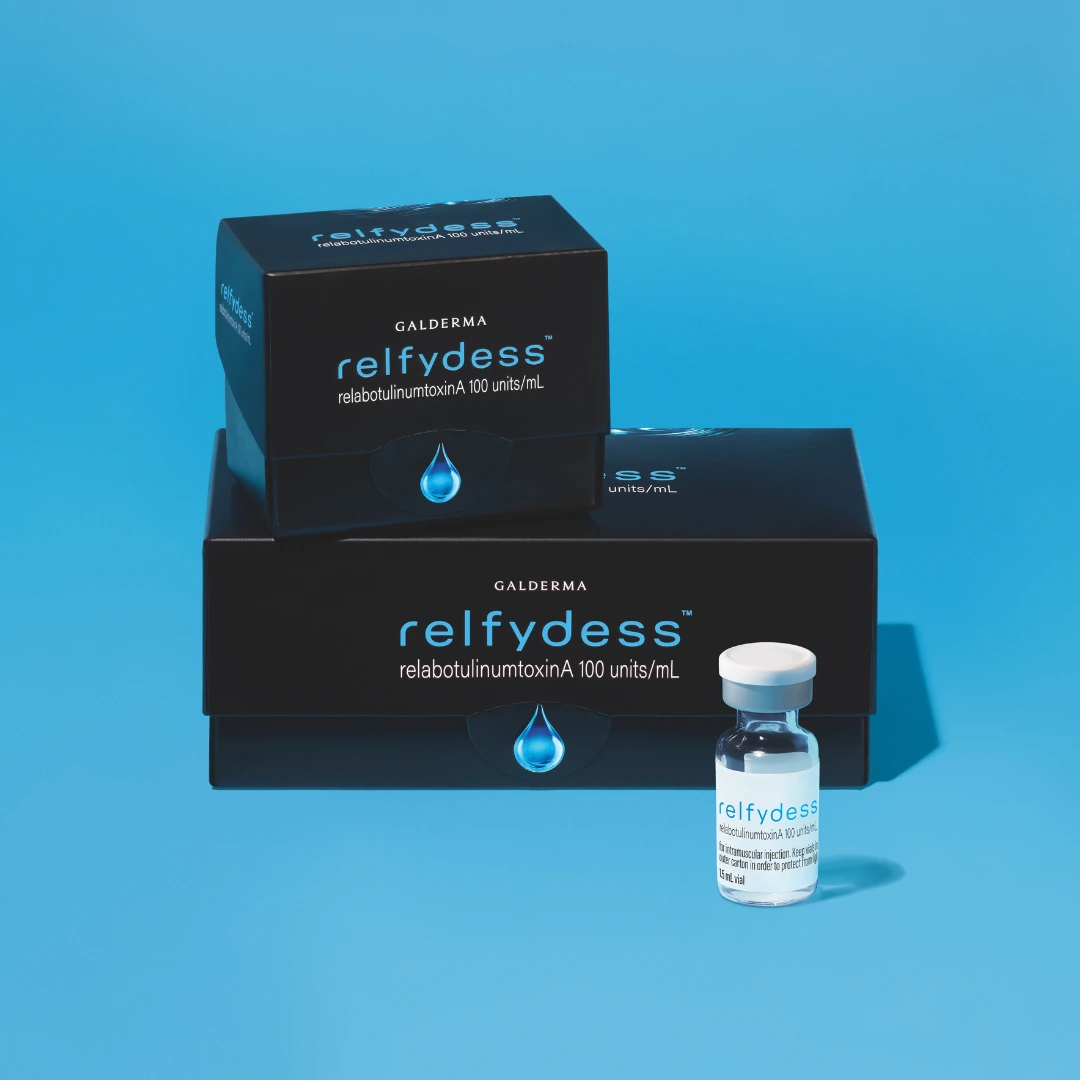If you’re seeking skin results that look like you just got back from holiday, slept nine hours straight, and drank three litres of water daily, then Polynucleotides might just be the aesthetics treatment for you. This next-generation injectable is gaining traction among aesthetic professionals, and for good reason. It doesn’t freeze muscles or fill lines, but instead works with your body to regenerate, repair, and rejuvenate your skin from the inside out.
At the Anti Wrinkle Clinic, we’ve seen a rise in patients wanting treatments that go beyond temporary fixes. They want healthier skin, not just smoother skin – and Polynucleotides fit that brief perfectly.
In this blog, we’re going to break down what they are, how they work, and why they should be a top consideration for your first or next aesthetic treatment.
What are Polynucleotides?
In the quest for healthier skin, we’ve reached a point where injectables are getting more natural, not less. So natural, in fact, that we’re now using… salmon sperm. No, this isn’t a prank. Polynucleotides – affectionately nicknamed the “salmon sperm facial” – are derived from purified DNA fragments found in fish, typically salmon or trout. But before you swim for the door, hear us out.
These DNA chains are carefully extracted and sterilised, making them medical-grade and completely safe. And despite the slightly bizarre origin story, they’re actually one of the most incredible regenerative ingredients we have in aesthetics today.
Let’s forget the fish for a second and focus on the science
As we age, our skin slows down. Collagen and elastin production drops, and the skin starts to lose its bounce, structure, and radiance (Kim et al., 2019). Polynucleotides effectively act as the skin’s wake-up call. When injected, they activate fibroblasts – those all-important cells responsible for producing collagen and elastin (Kim et al., 2019; Guizzardi et al., 2017). This means your skin can start rebuilding its strength and firmness in a way that feels natural and gradual.
But their impact doesn’t stop there. Polynucleotides also promote better blood flow (Guizzardi et al., 2017), improve cell turnover (Kim et al., 2019), and help neutralise oxidative stress (Bitto et al., 2011). Basically, they create a healthier environment for your skin to thrive. Add to that an increase in hydration (Kim et al., 2019), and you’ve got a treatment that works on multiple levels – from texture and firmness to radiance and resilience.
But probably the most amazing thing about polynucleotides is that they’re highly biocompatible (Guizzardi et al., 2017). This means that our bodies recognise them and know exactly what to do with them. Their biocompatibility makes polynucleotides a great choice for sensitive skin or anyone wanting to see real improvement without worrying about irritation.
Instead of forcing the skin to change, this advanced treatment gives it the support it needs to repair and strengthen itself in a natural, balanced way (Guizzardi et al., 2017).
The benefits of Polynucleotides
By working with your skin’s natural biology, Polynucleotides can help deliver real, noticeable improvements.
Improved skin texture
By stimulating fibroblasts and supporting healthy cell turnover, polynucleotides help smooth out uneven skin texture, leaving skin feeling softer and looking more refined.
Enhanced hydration
Polynucleotides attract and retain water within the skin, deeply hydrating from within and restoring a healthier, more supple feel.
Reduced fine lines and wrinkles
With increased collagen and elastin production, fine lines and early wrinkles become less visible over time, giving the skin a smoother appearance.
Firmer, more elastic skin
These treatments strengthen and support the skin’s structure, improving firmness and elasticity so your skin feels stronger and more resilient.
Natural skin radiance
Healthier skin is naturally more radiant. Polynucleotides promote better blood flow and repair processes, bringing back that fresh, well-rested look.
Treatment areas and patient suitability
Polynucleotides are incredibly versatile and can be used pretty much anywhere the skin needs extra support. This includes the face, neck, décolletage, and even the hands.
One of the standout areas to treat is around the eyes. In aesthetic medicine, this area is delicate, difficult to treat, and not suitable for most other treatments. Polynucleotides are able to strengthen and hydrate the under-eye area gently, without the risk of puffiness or heaviness of something like Dermal Fillers.
If you’ve tried other treatments before and found the results a bit too obvious – or if they just didn’t last as long as you hoped – polynucleotides offer a more subtle, natural-looking option. One that focuses on improving the quality of your skin rather than changing the way it looks.
What to expect from a Polynucleotide treatment
Polynucleotide treatments are quick and usually very manageable. Each session takes roughly 30 minutes, and most people benefit from 3 or 4 treatments spaced a few weeks apart. As far as maintenance is concerned, we recommend the occasional top-up session every few months.
Please do keep in mind that results aren’t immediate. Because Polynucleotides work with your body natural processes, improvements happen gradually – usually after 3 to 4 weeks. The skin then continues to strengthen and improve over time.
Downtime is minimal, and you might experience slight redness, swelling, or bruising at the injection points. Give it a day or two and these are sure to subside.
That said, polynucleotides aren’t suitable for everyone.
If you have a seafood allergy, this treatment isn’t advised due to its fish-based origin. It’s also not suitable during pregnancy, breastfeeding, or for those with certain autoimmune or bleeding disorders.
Safety and regulation
In the UK, polynucleotides are regulated as medical devices. This means that meeting high safety and quality standards is non-negotiable. At the Anti Wrinkle Clinic, we only use trusted, well-studied brands with solid clinical backing.
As with any injectable treatment, there are some risks – though they’re low when done properly. That’s why we always carry out a full hour initial consultation to review your medical history and make sure the treatment is right for you.
Conclusion
At the Anti Wrinkle Clinic, we’re always looking for treatments that don’t just mask a problem but actually improve skin from within. That’s exactly what polynucleotides offer. They don’t deliver instant volume like Dermal Fillers, and they don’t freeze movement like Anti Wrinkle Injections containing botulinum toxin.
What truly sets them apart is that they don’t aim to change how your face looks – they work to improve how your skin functions.
If you’re curious about whether Polynucleotides are right for you, Dr Yiannis is eager and available to talk you through it. A consultation is the best place to start, and from there he can build a plan that suits your skin and your goals.
Book Now
Medical Disclaimer
This article is for educational purposes only and does not constitute medical advice. Always consult with a qualified healthcare professional before making decisions about aesthetic treatments. Individual results may vary.
References:
Bitto, A., et al. (2011). Polydeoxyribonucleotide exerts anti-inflammatory and anti-oxidant effects in an experimental model of colitis. Journal of Biological Regulators and Homeostatic Agents, 25(4), 605–614.
Guizzardi, S., et al. (2017). Polynucleotides in tissue regeneration and repair: An overview of their mechanisms of action. Frontiers in Pharmacology, 8, 224.
Kim, J.H., et al. (2019). Clinical use of polynucleotides for skin rejuvenation: A review of evidence and mechanisms. Journal of Cosmetic Dermatology, 18(4), 1025–1032.
Author: Dr Yiannis Valilas DDS,Msc
Credentials: Member of General Dental Council, CMAC (Complications in Medical Aesthetics Collaborative), Hamilton Fraser
Dental License: GDC 84728
Last Updated: June 2025






